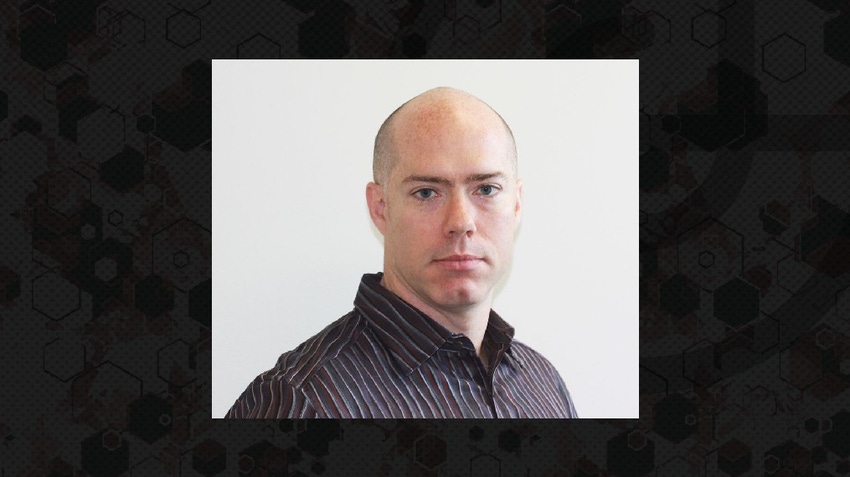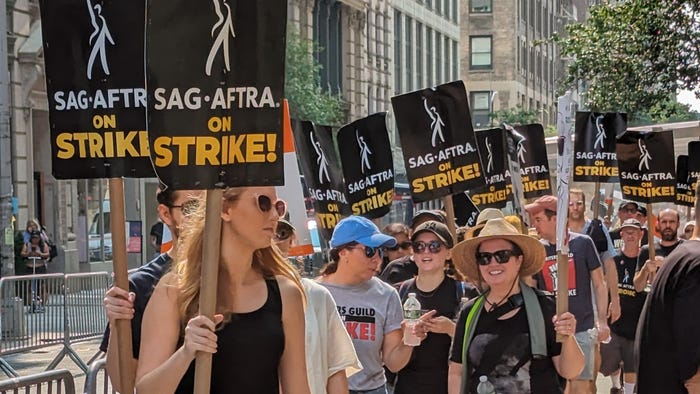Former Bungie general counsel says the game industry must unionize
Don McGowan, the former Bungie CLO who pursued Destiny 2 cheaters and players that threatened his coworkers, wants developers to fight for their rights.

At a Glance
- After being laid off from Bungie, Don McGowan is loudly trumpeting the need for unionization in games.
- He says developers stand to benefit from the physical and contractual advantages and union can provide.
Former Bungie chief legal officer Don McGowan spent the last few years attracting attention for high-profile lawsuits against Destiny 2 cheatmakers and players that targeted the studio with harassment. Despite breaking ground on how studios can protect their games and employees, McGowan and many of his legal colleagues were among the approximately 100 employees laid off by the studio in October 2023.
That's an unusual development in an era where the video game industry is shedding thousands of jobs. In an interview with Game Developer McGowan noted he's the kind of executive companies retain in times like this given the legal resources that are needed to process such large cuts.
But Bungie still has access to a robust legal team—the one employed by parent company Sony. Now McGowan is in the wind. He's continuing to teach entertainment law at the Seattle Film Institute and entering his "super villain era" according to his profile on BlueSky.
Not many supervillains share McGowan's fervor for a cause growing in popularity among game developers: unionization and labor organizing. He comes at the movement from an unusual starting point: the C-suite. He quipped that usually he's the one companies turn to deter unions, not enable them.
After enduring the brutal Bungie cuts and watching the industry brace for more job losses, McGowan is adamant: the game industry needs to unionize.
Unions can secure benefits, provide better job structure
McGowan's history in the entertainment business (and a chance encounter with SAG-AFTRA union negotiator Duncan Ireland-Crabtree and president Fran Drescher last year) have left him with the opinion that developers would benefit from a Hollywood-like union structure.
Such unions (like the local shops managed through IATSE, the WGA, and SAG-AFTRA) would let workers organize under "run of show" contracts that guarantee specific pay rates during the length of development and maybe most importantly, create a healthcare and pension system that would follow developers from job to job.
Studios would be able to ramp-up and then ramp-down their workforce needs in a similar way to how they already do with contractors and external development service providers. McGowan believes it's "very clear" that studios want a version of this model already.
This differs from the model used by the unions filed under Communication Workers of America, which has focused on organizing key departments at studios, most notably those working in Quality Assurance at companies like Activision Blizzard and Zenimax. Those unions have negotiated stronger benefits with their employers, but the benefits are still provided by their employers.
Hollywood Unions also benefit from structured guidelines on how workers can enter the union and then be paid under what is sometimes called a "structure of minimums" which define what the minimum pay is for different types of work. A contract with a specific company could then build on those minimums based on what workers and employers agree is fair.
This would likely shake up the organizational structure of game projects. But McGowan pointed out something important: a well-defined contract would create clear pathways to earn pay increases without being bumped into management positions.

Image by "Eden, Janine and Jim" via Flickr.
"A way to make your employees ineligible for unionization is to move them into management," McGowan explained. If employers sense that employee eagerness for a union is brewing, they might see who among their ranks has been seeking pay raises and offer them what they desire along with a title bump.
Many developers have experienced this phenomenon without any thought of unionization in their minds. They want to be paid more for their work but can only earn a raise by taking a leadership role. But when they take the job, they may not be ready for leadership, and they and their teams suffer as a result.
Said contracts can also be negotiated by union representatives with more experience under their belt. When companies bring in legal firms and hardball negotiators ready to fight tooth and nail to stop the union from getting strong benefits, professional negotiators brought in by the union can give as good as they get in these talks.
Unions also have a role to play in a month like this where the game industry is being blasted by waves and waves of layoffs in the name of "nimbleness" and profits. Unions cannot prevent layoffs, McGowan said, but they can negotiate better terms for employees cut from the company.
"The collective agreement will have [terms] stating "if there are going to be layoffs, here's what has to happen," he said. Even at non-run-of-show unions these could be used to combat some of the dirtiest tricks employers might use. One relevant tactic is to layoffs near the end of the month when healthcare eligibility is due to run out.
Companies can then abide by the letter of the law when it comes to statutory notices (like the WARN Act), but maintain power over severance agreements. Employees will be more likely to take a weaker severance package if it's their only shot of having income and healthcare for the next few weeks or months.
Dirty tricks. Moving workers into management. Hiding the true costs of game production behind short-term hires. The tactics McGowan described are harsh examples of how companies will play hardball with their workers whether they're unionized or not.
But when McGowan watched the SAG-AFTRA and WGA strikes of 2023, he saw something else: unionized game developers would have the power to play hardball right back.
A cup of coffee can make all the difference in the world
McGowan was referring to the basic tactic of union solidarity—the act of not just proclaiming solidarity with your fellow workers but aligning unions to meet mutual demands. It's illegal in the United States to coordinate strikes between unions, but it's not illegal to declare that your union will not under any circumstances cross the picket line of another union.
In the 2023 strikes, actors and writers could shut down entire productions and inflict more financial pain on the studios by assembling a picket line in front of studio lots and location shoots. So long as they didn't physically block access to the facility and workers could pass if they wanted to, it invoked a principle held by fellow unions like the Teamsters: unionized workers will not cross another union's picket line.
That slowed down everything from craft services, to deliveries, to construction, and beyond. As long as work needed to be done in a physical location, a picket line could be formed to "protect" it.
Right now game developers do not have the leverage of solidarity at their disposal. With a union, they could.
What other unions could they stop from crossing a picket line? Game studios rely on truck drivers, janitorial workers, and other non-media businesses that unionized decades ago. "You've got all these studio execs in their office who can't get coffee because craft services can't be staffed because the Teamsters won't cross the line," said McGowan.
Physical leverage, not just financial, has a way of incentivizing executives to negotiate. And physical leverage becomes more powerful in a world where leaders like those at Activision Blizzard are dragging developers back into the office.
Brace yourselves, developers
Unions did not emerge in the early 20th century because times were good and workers were seeking humble pay raises. They were founded because times were hard, work was dangerous, and no individual worker could stand up to the hired thugs who would enforce the will of the bosses.
Solidarity carried workers through those moments and gave birth to still-dominant organizations like the United Auto Workers Union but the struggle of the movement was still that: a struggle. McGowan had words for those struggling under the weight of the moment.
"There's a lot of bad news going around right now...and there's no shame in leaving it for a while and coming back."
It's a solemn thought. Plenty of folks chose to work in game development over other better-paying software companies because they sought fulfilling work. Walking away from that, even temporarily, is frightening.
But a man who's bounced from intellectual property law to the Pokémon Company to film production to the legal muscle of Destiny 2 would be one to know how careers can ebb and flow over the years.
"Keep yourself sharp if you think you want to come back, and there's no shame in just leaving. The company will never love you back, but if you let it, it'll kill you."
About the Author(s)
You May Also Like









